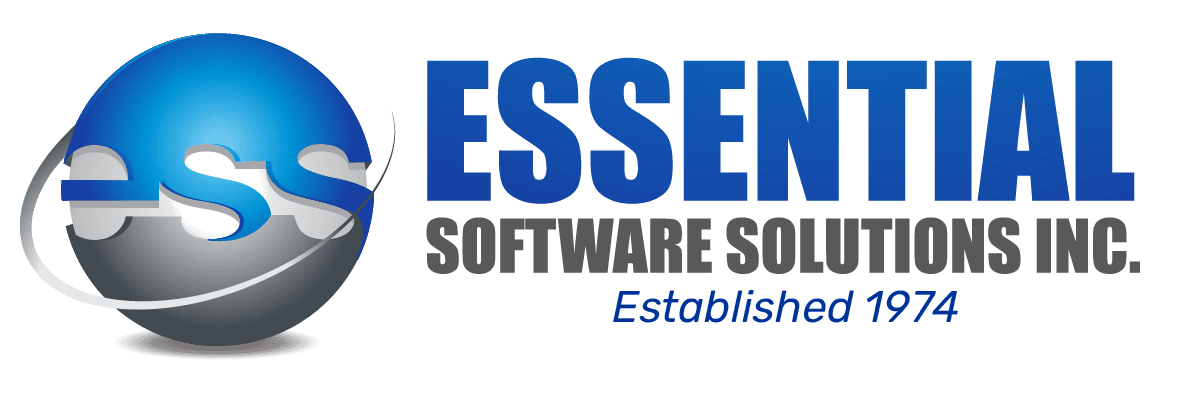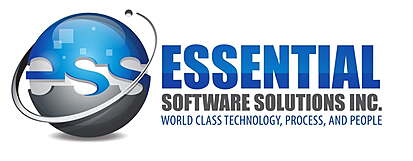Thoughts on ERP 2018 from ESS's Dan Telep: With every new year comes a tidal wave of online ERP predictions, some bullish, some bearish, some carefully straddling both camps. In general, I distance myself from forecasting the future – it’s my job to present the case for ERP no matter what the market conditions. This year, however, I’m throwing caution to the wind. With a single caveat, I believe that this could be a banner year for ERP. My optimism is multifaceted, but today I’ll focus on three key factors.
1. The Economy
Expectations on the global, national and local fronts are uniformly positive. Global trade continues to rebound considerably from its terrible performance in 2016, and (according to the World Trade Organization) is expected to grow between 2.1% and 4% this year. 1 In Canada, we enjoyed broad-based economic growth over the last 12 months – 3.1%, with goods exports up 8.7% and some 343,000 newly generated jobs. 2 The International Monetary Fund expects Canada’s year-over-year growth rate will be 2.1% in 2018, the second-highest among the G7 countries, right after the US – our most important trading partner. 3 Another factor “fueling” my prediction is the price of oil. In early January oil hit $70 a barrel, a four-year high. At $70 a barrel Alberta’s tar sands are once again economical. That’s great news for Alberta, Canada, and the economy in general. As business begins to flow, companies will scale for growth and invest in their digital transformation initiatives. And that, of course, is good for ERP.
2. SaaS and the Cloud
2017 was the year that software-as-a-service (SaaS) matured. To be blunt, even a year ago there were compromises in functionality that remained to be resolved. Today, however, SaaS is no longer playing catch-up. Infor’s SaaS offerings can deliver everything an on-premise ERP can deliver, at a significantly lower price point. In addition, thanks to SaaS, there have never been more options for ERP financing. From straight subscriptions to bundling and leasing – SaaS is an extremely flexible solution that can bring benefits to the bottom line through reductions in Total Cost of Ownership. SaaS also helps to reduce risk, by eliminating long-term financial commitments. In addition, there’s a growing awareness that SaaS on the Cloud (or, in some cases, a hybrid ERP option) has the potential to provide businesses with more cutting-edge tools and competitive advantage than the average on-premise ERP. For example, traditional ERP has focused on the creation of transactional data. Modern ERP goes a step further, closing the loop with analytic functionalities which interpret the data and provide the “next best action”. Taking advantage of “Industry 4.0” technologies (such as data analytics, artificial intelligence and the Internet of Things) would be out-of-reach for many companies without SaaS. The desire to deploy these tools will be a significant factor for SaaS/Cloud-based ERP adoption in 2018.
3. Mobile Processes for the Agile Enterprise
Mobile ERP has become a major growth area for ERP vendors. When mobile business systems were first rolled out, they suffered from what analysts called the “app gap”. Since then, mobile has matured, and the “app gap” has been filled with solutions that improve employee productivity, increase customer engagement and enhance business processes and work flow. Businesses that embrace mobile technology experience significant gains to speed and agility, through enhanced data collection, streamlined processes, and insights gained from simplified and effective collaboration. For manufacturers, remote, real-time, device-agnostic access to corporate systems is quickly becoming a priority.
Caveat on ERP 2018
There is, unfortunately, a caveat to my optimism. We are still waiting to see what happens with NAFTA, as President Trump continues to look for concessions from Canada and Mexico. Whatever the outcome, I still believe that 2018 will be an important year for ERP. Canadian industry needs to take stock, be proactive, and, above all, stay competitive. It has been shown, time and again, that companies that invest in ERP reap significant long-term benefits.
About ESS and Dan Telep
Dan Telep, VP of Marketing and Operations, Essential Software Solutions, has been working with and leading ERP implementation projects for over 20 years. Dan has a passion and a vision for how ERP can transform an organization. Affectionately called an ERP Evangelist, his ability to hear a business need and translate that into a practical solution is second to none. He also has ERP leadership experience in a variety of industries, including aerospace, medical devices, metal fabrication, and food products. Read more>>Essential Software Solutions (ESS) is Canadian-owned-and-operated Gold Level Infor partner. Providing leadership and certified ERP consulting services from coast to coast, ESS helps businesses optimize work flow, automate processes, improve quality, shorten turnaround, and save time and money. We do this by working with you to implement ERP solutions specifically designed to improve business operations in Industrial Manufacturing, Fabrication, and Field Service-based companies. Our products of choice include Infor CloudSuite Industrial (SyteLine), Infor Configure Price Quote (CPQ) and Infor Service Management.











